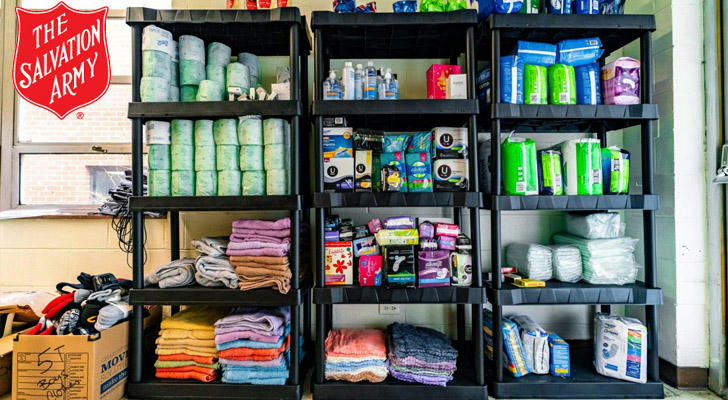🧻 How to Get Toilet Paper Support in the United States
Access to basic household necessities like toilet paper is essential for health and dignity. In the United States, several government programs, nonprofit organizations, and local community initiatives provide help to families and individuals struggling to afford everyday essentials. Whether you’re facing temporary financial hardship or need ongoing assistance, there are multiple ways to receive toilet paper and other hygiene products.

1. Government and Nonprofit Assistance Programs
Public and nonprofit organizations frequently include hygiene supplies, such as toilet paper, in their relief services. The Salvation Army’s Family Services, United Way partner programs, and Catholic Charities often distribute household items along with food and clothing.
👉 Tip: Contact your city or county’s Department of Human Services or visit their official website to learn about current hygiene supply programs in your area.
2. Community Centers and Faith-Based Organizations
Many community centers and churches operate “hygiene pantries” or “family care closets,” offering toilet paper, soap, and other personal items to households in need. These programs aim to support low-income families, seniors, and people experiencing emergencies.
➡️ Check local announcements, bulletin boards, or community newsletters for upcoming hygiene distribution events.
3. Food Banks and Household Supply Pantries
In addition to food, many food banks across the U.S. now include household and hygiene products. Networks such as Feeding America, Salvation Army food pantries, and local community action agencies often partner with businesses to provide toilet paper, paper towels, and other daily essentials.
🧺 Visit your nearest food bank’s website or call ahead to confirm whether hygiene items are available.
4. Brand and Retailer Community Programs
Some large retailers and manufacturers sponsor donation drives or partner with nonprofits to distribute essential paper goods. For example, national grocery chains occasionally run “household essentials weeks” in collaboration with community organizations, offering toilet paper and hygiene packs to families.
Companies that produce paper products may also donate directly to disaster recovery or community care events through nonprofit partnerships.
5. Neighborhood Exchange and Mutual Aid Networks
Local mutual aid groups, neighborhood associations, and platforms like Nextdoor or local Facebook community pages often organize small-scale donation or exchange programs.
Residents share extra toilet paper, tissues, and other essentials with neighbors in need — especially during economic downturns or emergencies. Joining these groups helps you stay updated about local donation events.
6. Seasonal Drives and Emergency Relief Events
During major holidays or community outreach seasons, organizations such as YMCA, Boys & Girls Clubs, and housing assistance programs hold drives that include hygiene kits with toilet paper and cleaning supplies.
🗓️ Look out for “Clean Home” or “Family Care” campaigns listed on local community calendars or social media pages.
7. Toilet Paper Support by Age Group
| Age Group | Common Sources of Support |
|---|---|
| 45–54 | Individuals balancing work and family responsibilities may access hygiene supplies through workplace donation drives, local union partnerships, or community aid programs run by the Salvation Army or United Way. |
| 55–64 | Those facing reduced employment or early retirement can receive toilet paper and similar supplies from food banks, faith-based organizations, and local action agencies. |
| 65–74 | Senior centers, Aging and Disability Resource Centers (ADRCs), and community outreach programs often include toilet paper and hygiene items in their home support kits for seniors on fixed incomes. |
| 75–85 | Older adults who receive Meals on Wheels, Salvation Army home visits, or community care packages may also receive hygiene supplies — ensuring comfort and dignity for seniors living independently. |
8. Case Example
Maria in Ohio, a single mother of two, found relief through her local Salvation Army Family Services Center, which offered hygiene kits including toilet paper, soap, and cleaning products. The program partnered with a nearby grocery store chain to help families maintain daily hygiene during financial hardship.
Maria said, “It might seem small, but having these basic supplies made a big difference for our family.”
9. Conclusion
Toilet paper assistance in the United States is widely available through community-based organizations, food banks, churches, and national nonprofit networks. By connecting with these programs, households can reduce daily living expenses and maintain essential hygiene with dignity.
Whether through the Salvation Army, United Way, Feeding America, or neighborhood support groups, help is available for anyone in need of basic hygiene supplies.
